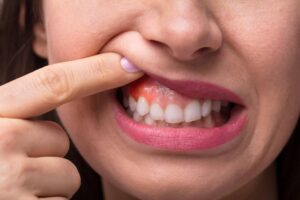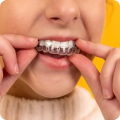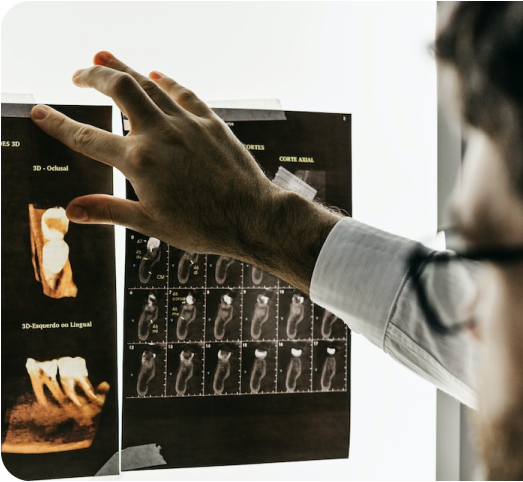
Gum Disease Awareness Month
Gum Disease Awareness Month February is Gum Disease Awareness Month. Gum disease is an infection of the gums that is typically caused by poor oral hygiene. Although this condition can potentially cause tooth loss, the early stages are often painless. Therefore, individuals can live with gum disease for years without noticing any symptoms. Attending annual exams gives your dental team an opportunity to catch gum disease as early as possible and help stop its progression. Symptoms of Gum Disease: Bleeding gums Red gums Receding gums Swollen gums Bad breath Foul taste in mouth Loose teeth Changes to bite alignment Change in partial denture fit Gingivitis Gingivitis is the first stage of gum disease and the simplest to treat. Patients with gingivitis may have red, swollen gum that bleeds easily. However, many gingivitis patients are unaware of their condition until receiving a formal diagnosis. This stage of gum disease is often reversible with proper care. Treatment for gingivitis often includes professional hygiene cleanings, prescription mouthwash or toothpaste, and excellent daily oral hygiene. Periodontitis Periodontitis is an advanced stage of gum disease. According to the Centers for Disease Control and Prevention, periodontitis affects 47% of US adults over age 30. If left untreated, this condition can cause tooth and bone loss. Gum disease is known for its slow progression, but rapid periods of advancement can occur. Professional dental hygiene cleanings, medications, and surgery are effective treatment methods for periodontitis patients. It is also essential for patients with periodontitis to commit to a diligent oral hygiene routine to manage their condition. Risk Factors for Gum Disease: Tobacco use Diabetes Poor oral hygiene Pregnancy Genetics Certain medications Although there is no conclusive link between periodontal disease and systemic diseases, research has collected data to support that gum disease may be associated with certain health conditions, including heart disease, diabetes, Alzheimer’s disease, cancer, respiratory disease, and stroke. Prevention Exceptional at-home oral hygiene and regular preventative dental care are the most effective methods to prevent gum disease. Your daily oral hygiene routine should include brushing your teeth twice a day for two minutes, cleaning the tongue twice a day with a brush or tongue scraper, and flossing daily. In addition, ensure you receive a professional dental cleaning twice a year and at least one dental exam annually. If we detect any signs of gum disease at your preventive visits, we will design a treatment plan to stop the progression and avoid chronic side effects. Published by Dr. Namrata Shah Trending



